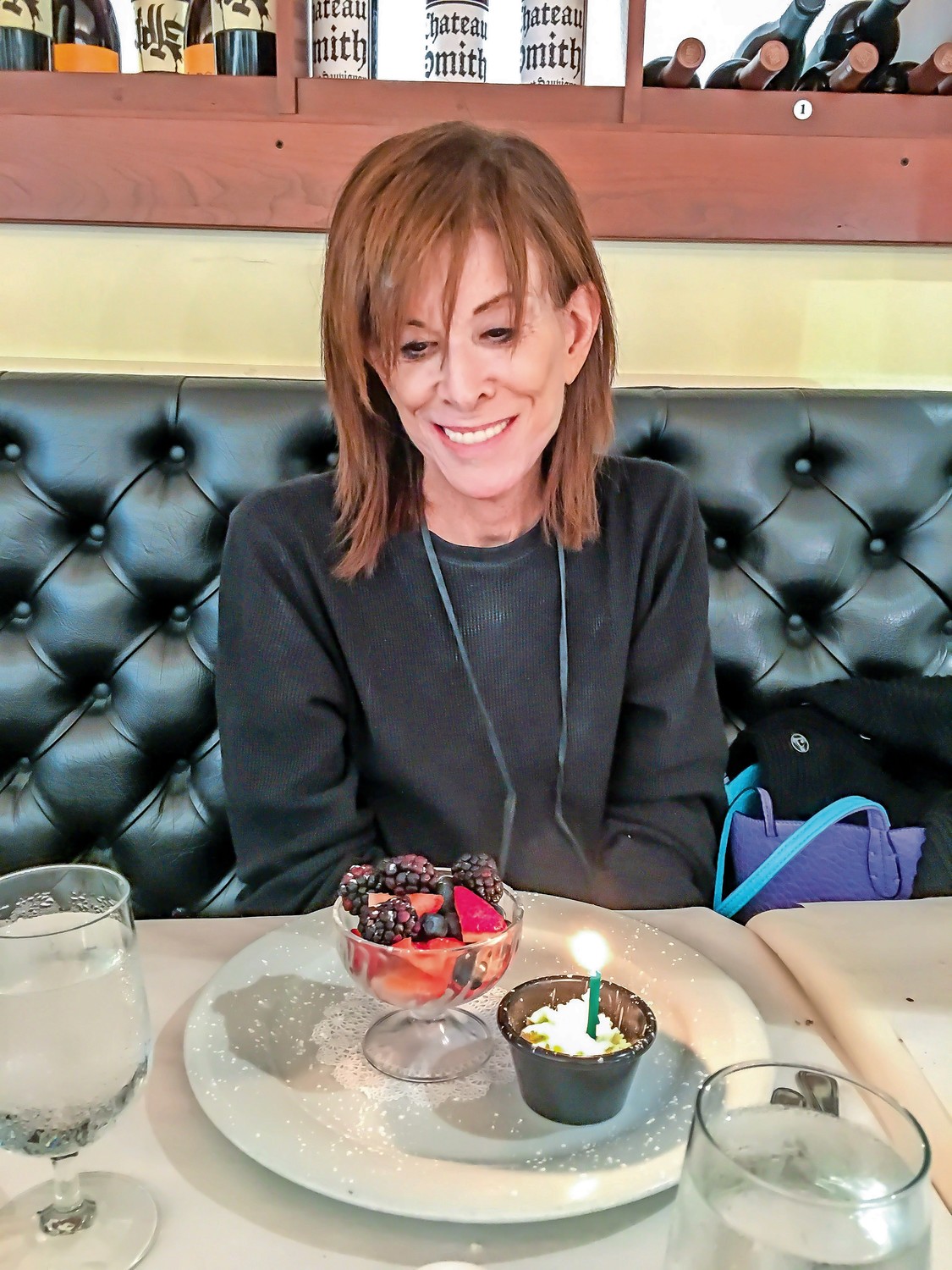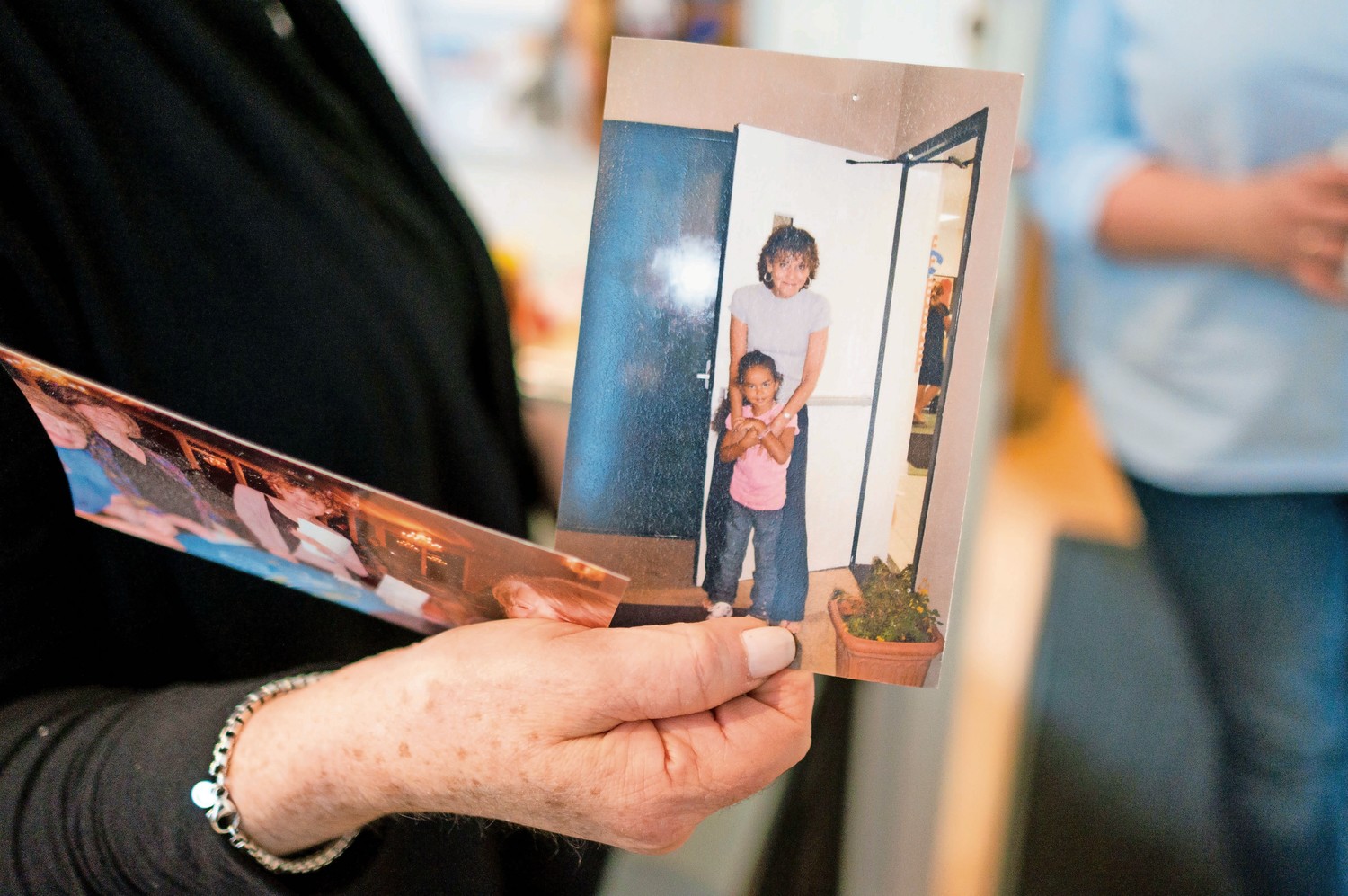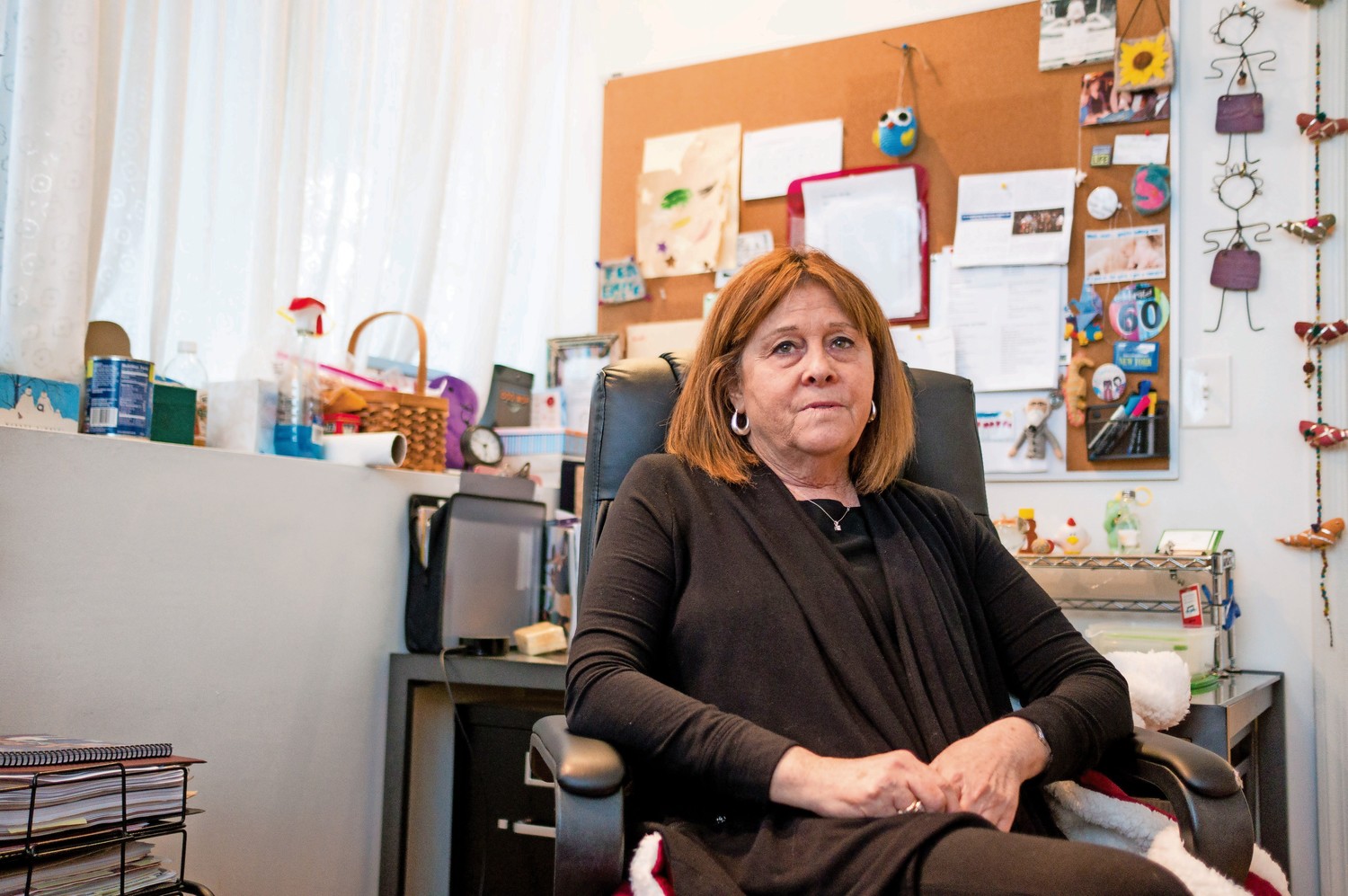Kidney recipient now seeks same for her sister
When Jan Maxwell was just 9, she overheard her father talk about how very happy he would be to have just another 10 years with his children.
“His sense of time was unfortunately very accurate,” Maxwell said, “because he died about 10 years after that conversation.”
Maxwell’s father, Alan Roberts, suffered from polycystic kidney disease, an inherited disorder that causes cysts to grow in kidneys, prompting a gradual loss of function. In some cases, the disease can lead to complete kidney failure.
That same disease that would end Roberts’ life at 42 was passed down to his children, including Maxwell, her brother Brian Stanton, and her sister, Susan Smelin. And now Smelin is on a mission to save Maxwell’s life, by seeking a kidney donor.
That’s because Smelin, director of Riverdale Nursery School, has been through it all before. Eight years ago, Smelin received two life-saving transplants. Years later, Stanton picked up a new kidney of his own. And now it’s Maxwell’s turn.
“I thought if I had it, they wouldn’t have it,” Smelin said. “My sister was the healthiest in terms of her kidney disease. We were very optimistic that she would never need a transplant. But her decline was very quick, and I was obviously disappointed she ended up in this place.”
Today Maxwell suffers from end-stage renal disease. That means the cysts have taken over the kidney tissue rendering the kidney useless.
Smelin was diagnosed at 10. Her siblings, not until their 20s. In some cases, someone with polycystic kidney disease can live their whole lives without ever needing a transplant.
“I think she’s scared,” Smelin said of Maxwell. “I don’t know if it was advantageous to go through it with both of your siblings because you know what’s coming, but sometimes that’s worse.”
When Smelin was hospitalized, Maxwell was with her every day, despite Smelin living in Riverdale and Maxwell in Maryland. The sisters remain close.
“My sister is sort of my other half in many ways,” Maxwell said. “My sister and I are two individuals that are able to function with one another and care about one another. It’s a very special relationship.”
When Smelin first learned of her sister’s condition, she and her family threw themselves into “high drive” in search of a donor.
Since making her condition public, Maxwell has experienced support from different parts of the world. Maxwell is active within the Jewish community and the education system. Her synagogue in Maryland has even taken it upon themselves to create a year-long program educating the congregation and community on kidney donation.
Yet, Maxwell has not found a suitable donor. The outpouring of support, however, has been wonderful, she said. So Smelin is trying something that worked for her back in 2009 — she’s reaching out to the readers of The Riverdale Press.
“It was like seeing my own funeral and being lucky enough to do that because there were so many people that came forward and showed that they cared,” Smelin said. “It was such an amazing and moving experience, and there were so many positive sides to this.”
And even parts that aren’t so positive — like the fact that both sisters have type O blood, the hardest blood type to find a match for — Smelin looks for a way to keep her and her sister optimistic.
The waitlist for organ donation in major cities is typically quite long — the number of people needing donations far outweigh those available to make them. In some cases, patients could wait up to 10 years.
While programs like organ donations from people who died are effective, live kidney transplants are statistically safer and better, which was the route Smelin was ultimately able to take.
“Kidney donation in general is the ability to give someone a second chance at a healthy life,” Maxwell said. Even doing something as simple as agreeing to be an organ donor on their driver’s license can make a difference.
“I want to emphasize that becoming a donor for a person, knowing that the donation will happen after they pass, people should still be proud of that commitment,” she added. “They are just as important as a living donor.”
Maxwell has her good days and her bad. Most of the time, she’s very tired and feels as though she’s living in two worlds — the world she’s always lived in of volunteer work and community engagement, and the “revolving door of kidney patients.”
Maxwell also remembers the four long stretches of time her father was in and out of the hospital during his early 30s. Yet when he wasn’t sick, he was full of life and exposed his children to theatre and art, and led an example through his own community work, Maxwell said.
In fact, in honor of her father, Maxwell changed her middle name to his last name: Roberts. And with the support of her siblings, Maxwell is optimistic she will find a donor.
She encourages anyone who might be willing to help to email her at kidney4jan@gmail.com.
“I will be hopeful,” Maxwell said, “until there is a reason not to be hopeful.”











